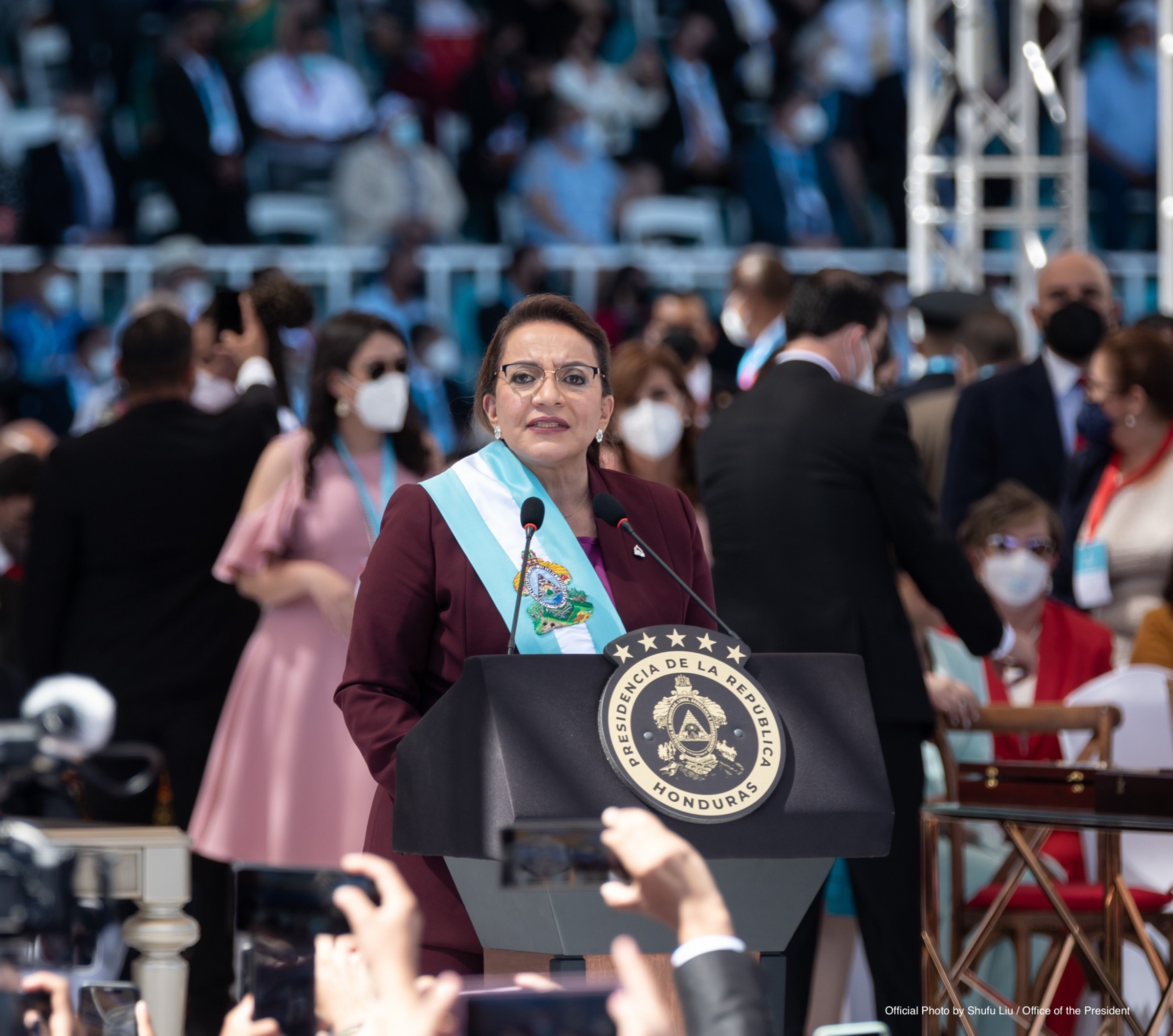The ruling, issued September 20, caps off a years-long campaign by the Central American country’s leftist President Xiomara Castro to outlaw the ZEDEs. “Justice for the Honduran people means not selling off our territory piecemeal or privatizing our sovereignty,” she wrote on X after the ruling.
Since 2013, Honduras has permitted the establishment of the semi-autonomous zones that remain bound by the constitution and criminal code of Honduras but are otherwise granted considerable freedom to operate under their own civil codes and regulatory schemes.
Proponents hoped ZEDEs would facilitate new ways of governance that could serve as a model for similar efforts around the world. Locally, the Honduran government was enticed by the prospect of attracting foreign capital and boosting the economic prospects of the deeply impoverished nation.
The most well-known of the ZEDEs is a private city known as Próspera. Established on the island of Roatán, Próspera attracts investors from around the world with the promise of flexible regulation. Businesses may elect to operate under the regulatory schemes of 36 countries or even design their own regulations, subject to approval.
To date, more than 200 businesses have been incorporated in Próspera and about 1,700 people live there. A Bitcoin cafe, genetics clinic and scuba shop are among the businesses physically operating in the city. According to Prospera, more than $100 million have been invested into businesses incorporated in the private city.
“The concept of free private cities and charter cities, specifically what Próspera is trying to do, is the most transformative project in the world,” Joel Bomgar, president of Próspera Inc., told Reason last year. “There’s not a big financial hub in Central America. There’s not a sort of Singapore of Central America right now. And so that’s what we’re trying to create.”
Read this Free Cities Center article about private cities.
Read this Free Cities Center booklet by Scott Beyer about Latin America’s experience with urbanism.
There are more modest ZEDEs as well, though, including Ciudad Morazán, the goal of which has been to develop a community in which up to 10,000 people could live and work. “With a focus on manufacturing and industrial processes, the project aims to provide prospective industrial tenants with a business-friendly environment and residents with safe, affordable housing and amenities,” explains the Charter Cities Institute.
Regardless of their goals, intentions or potential, the ZEDEs have been under attack in Honduras in recent years.
The political context of the ZEDEs didn’t help. The ZEDEs were legalized under President Porfirio Lobo Sosa and pushed by his successor Juan Orlando Hernández. The latter has since been sentenced to prison for drug trafficking and the former has likewise been beset with allegations of corruption.
It was in this context that Xiomara Castro rose to power in 2022, successfully casting the ZEDEs as an attack on Honduran sovereignty. Opponents took to condemning them as “neocolonial.” Soon after taking office, Castro signed legislation repealing the law enabling the ZEDEs to operate. This effectively blocked any new ZEDEs from being established. But in addition to that, the congress also sought a constitutional reform to abolish existing ZEDEs.
This all culminated in the September Honduran Supreme Court ruling that the laws underlying ZEDEs are unconstitutional and therefore voided their legal basis. (Amid all of this, incidentally, Xiomara Castro has found herself in the middle of her own corruption scandal.)
Próspera, for its part, has tried to fend off these legal attacks. But the political context is bleak at best. “Without rule of law, a country falls apart,” noted Jorge Colindres from Próspera. What is still left to be seen is exactly how Honduras goes about trying to shutter the ZEDEs.
One glimmer of hope is that some ZEDEs, including Próspera, are operating with a 50-year legal stability guarantee backed up by the Dominican Republic-Central America-United States Free Trade Agreement.
But that the Supreme Court would go so far as to deem ZEDEs illegal anyway is understandably alarming to ZEDE proponents and operators.
Próspera has taken to X, formerly Twitter, to warn, “Honduras is on the brink of becoming the next Venezuela. The Castro Administration’s recent Supreme Court decision threatens to expropriate over $120M in U.S. investments, destroy 235 businesses, and eliminate thousands of jobs in Próspera ZEDE.”
Still, Próspera is thought to have a chance due to pending litigation through the World Bank’s International Center for Settlement of Investment Disputes, from which Honduras has since sought to withdraw.
Time will tell how this all shakes out, but it’s clear that any major takeaways from the ZEDE experiments in Honduras are tied up in the complicated politics of their time and place. For those curious about how free, private cities can work, the ZEDEs have been experiments worth keeping an eye on. Now, they’re also an unfortunate example of how governments can get in the way of innovation and make a mess of things.
Sal Rodriguez is opinion editor for the Southern California News Group and a senior fellow with the Pacific Research Institute. He is the author of Dynamism or Decay? Getting City Hall Out of the Way, published by the Pacific Research Institute.

